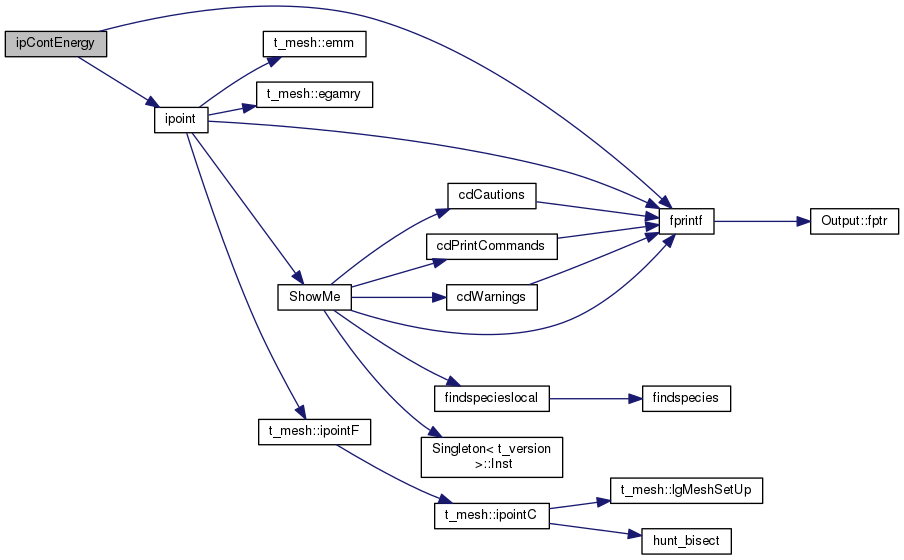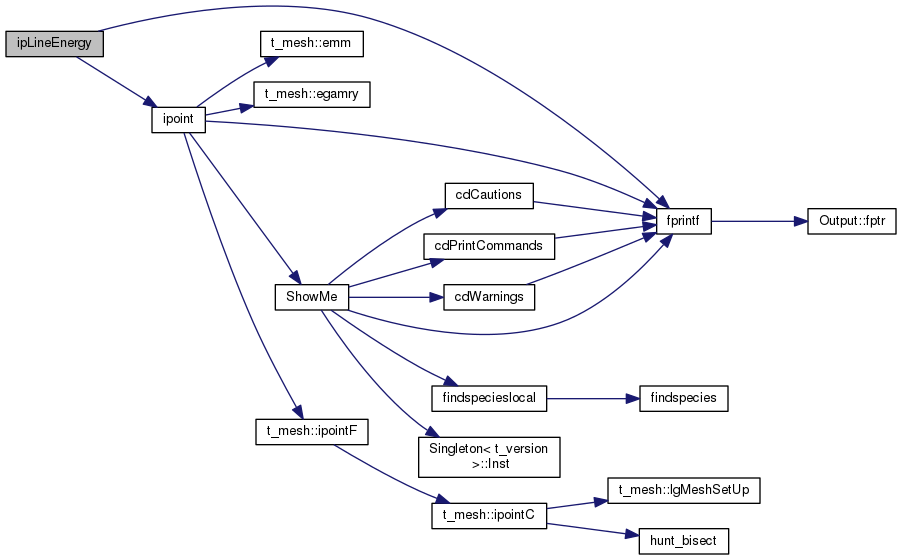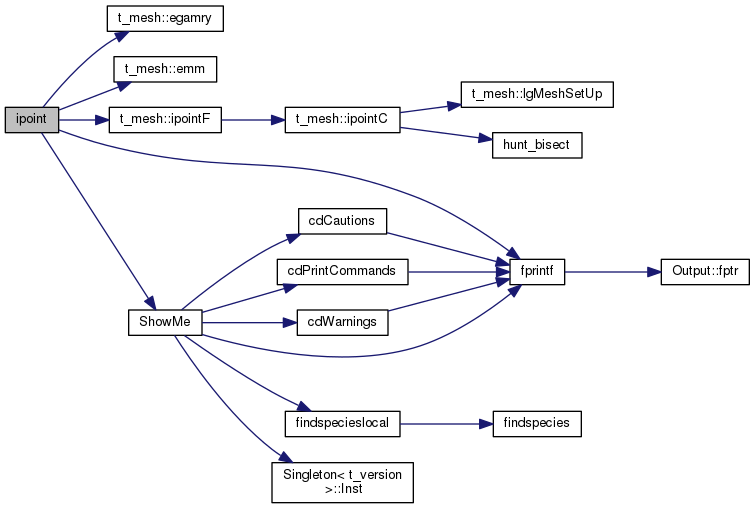|
cloudy
trunk
|
|
cloudy
trunk
|

Go to the source code of this file.
Functions | |
| long | ipoint (double energy_ryd) |
| long | ipContEnergy (double energy, const char *chLabel) |
| long | ipLineEnergy (double energy, const char *chLabel, long ipIonEnergy) |
| long | ipFineCont (double energy_ryd) |
| long ipContEnergy | ( | double | energy, |
| const char * | chString | ||
| ) |
ipContEnergy generates a safe pointer to energy in continuum array with energy given by the first argument (Rydbergs). The second is a label that will be placed at that energy if none have yet been set. The last is the energy of the next higher continuum. the code will make sure that the pointer is not within this continuum - that would create serious energy problems
| energy | - photon energy in Ryd |
| chString | - 4 char + null string giving label for the continuum edge |
Definition at line 31 of file cont_ipoint.cpp.
References t_rfield::chContLabel, DEBUG_ENTRY, fprintf(), ioQQQ, ipoint(), and rfield.
Referenced by ContCreatePointers(), and ipShells().

| long ipFineCont | ( | double | energy | ) |
ipFineCont returns array index within fine energy mesh
| energy | in Ryd |
Definition at line 165 of file cont_ipoint.cpp.
References ASSERT, DEBUG_ENTRY, t_rfield::fine_ener_hi, t_rfield::fine_ener_lo, t_rfield::fine_resol, t_rfield::nfine, and rfield.
Referenced by ContCreatePointers(), diatomics::H2_ContPoint(), save_opacity(), and SaveDo().
| long ipLineEnergy | ( | double | energy, |
| const char * | chString, | ||
| long | ipIonEnergy | ||
| ) |
ipLineEnergy generates a safe pointer to energy in line array with energy given by the first argument (Rydbergs). The second is a label that will be placed at that energy if none have yet been set. The last is the energy of the next higher continuum. the code will make sure that the pointer is not within this continuum - that would create serious energy problems if, for instance, a Lyman line could ionize H
| energy | - photon energy in Ryd |
| chString | - 4 char + null string giving label for the line |
| ipIonEnergy | - ipIonEnergy - if <0 ignored, if >0 will make sure that return array index is less than this - used to make sure we don't overflow into a higher continuum |
Definition at line 68 of file cont_ipoint.cpp.
References ASSERT, t_rfield::chLineLabel, DEBUG_ENTRY, fprintf(), ioQQQ, ipoint(), lgMustPrintHeader, t_prt::lgPrnLineCell, t_prt::lgPrtContIndices, t_prt::lgPrtContIndices_hi_E, t_prt::lgPrtContIndices_lo_E, t_rfield::line_count, MIN2, t_prt::nPrnLineCell, prt, and rfield.
Referenced by ContCreatePointers(), diatomics::H2_ContPoint(), ipShells(), and PntForLine().

| long ipoint | ( | double | energy | ) |
ipoint - the basic routine that generates an index for the continuum array
| energy | - photon energy in Ryd |
Definition at line 15 of file cont_ipoint.cpp.
References cdEXIT, t_mesh::egamry(), t_mesh::emm(), EXIT_FAILURE, fprintf(), ioQQQ, t_mesh::ipointF(), rfield, and ShowMe().
Referenced by ContBandsCreate(), ContCreatePointers(), ContSetIntensity(), extin(), GetDissociationRateCoeff(), diatomics::GetHeatRate(), GridGatherInCloudy(), diatomics::H2_LevelPops(), diatomics::init(), ipContEnergy(), ipLineEnergy(), ipShells(), lines(), OpacityAddTotal(), OpacityCreateAll(), outline_base(), EnergyEntry::p_set_ip(), PrtFinal(), PrtHeader(), PrtTwoPhotonEmissCoef(), radius_first(), RT_tau_init(), SaveDo(), SaveNewContinuum(), TwoPhotonSetup(), and UpdatePot().

 1.8.5
1.8.5